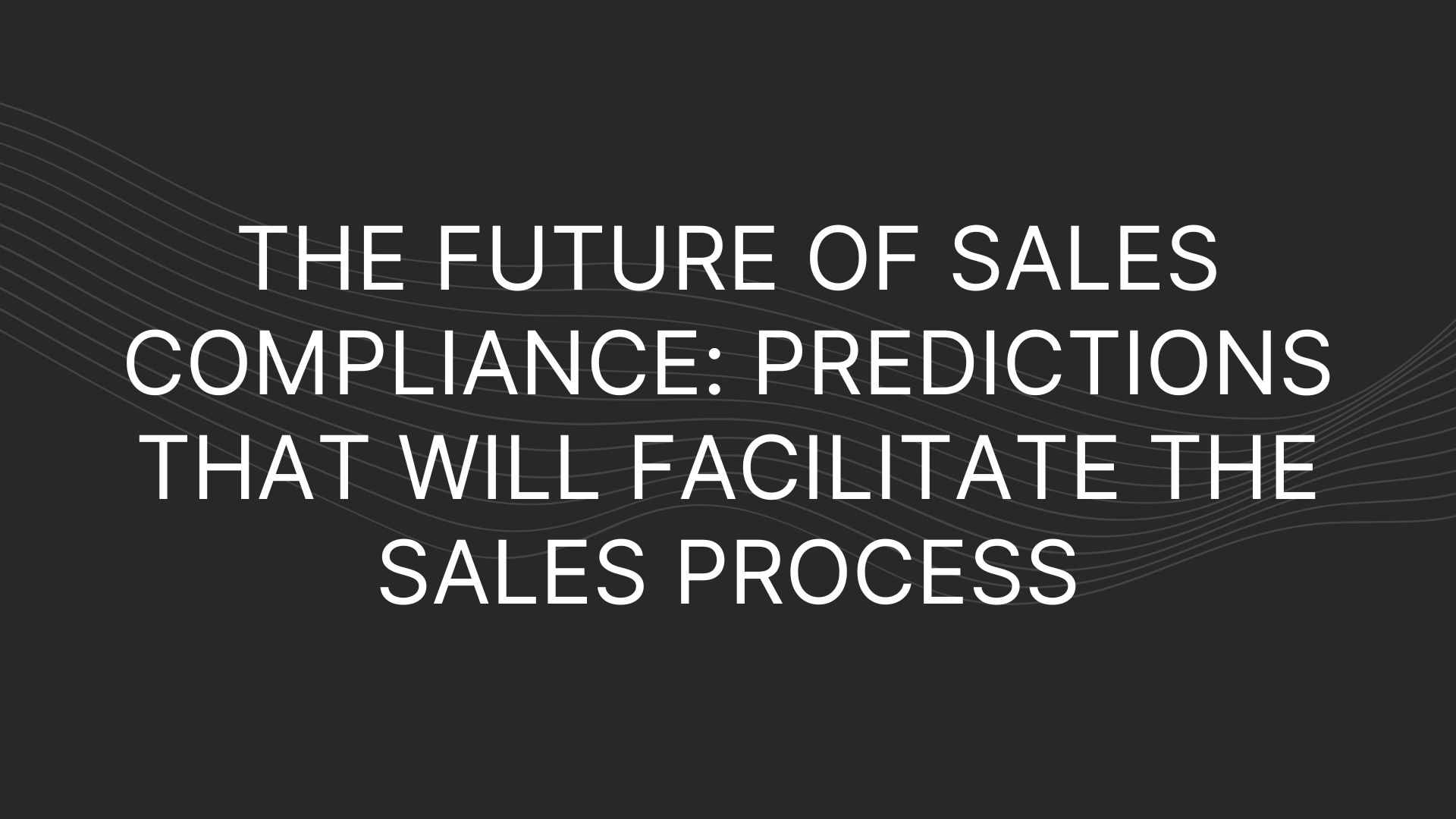Rapid technological advancements and shifting consumer behaviors strongly influence how businesses tackle the ever-evolving issues of sales compliance. As companies navigate an increasingly complex regulatory environment, predicting the trends shaping the future of sales compliance is becoming increasingly important, especially in adhering to necessary regulations and gaining a competitive edge within the dynamic market.
What is Sales Compliance?
Sales compliance involves guaranteeing that your company’s sales interactions adhere to government-established regulations. These rules are primarily designed to safeguard consumers from deceptive practices, particularly in the context of financial institutions.
In practical terms, sales compliance entails ensuring that all forms of communication align with relevant regulations across every channel where direct consumer interaction occurs. This encompasses various platforms such as email, social media, phone conversations, and messaging. It is the organization’s responsibility to ensure that the messaging delivered by their sales representatives is both precise and truthful while also conforming to all pertinent regulations.
That said, let’s get into the key predictions set to revolutionize the sales process and ensure seamless compliance.
Embracing AI-Powered Compliance-Focused Sales Tools
Artificial Intelligence (AI) is poised to assume a crucial function in shaping the trajectory of sales compliance in the forthcoming times. Cutting-edge AI algorithms can scrutinize extensive datasets, thereby detecting potential compliance vulnerabilities and furnishing instantaneous, actionable observations to sales teams.
The deployment of predictive analytics holds the potential to proactively forecast customer requirements and tendencies, enabling enterprises to customize their sales approaches within the framework of regulatory parameters.
Through the adept utilization of AI’s capabilities, organizations can guarantee that their sales endeavors are characterized by both effectiveness and adherence to compliance standards. AI can also assist in automating routine compliance tasks, freeing up sales professionals to focus on strategic initiatives.
Automation of Compliance Procedures
Automation is another driving force behind the evolution of sales compliance. Streamlining compliance procedures through automation can significantly reduce human errors and save time. As the sales process becomes increasingly digitized, automating compliance checks and documentation can ensure that every transaction aligns with the latest regulations.
This safeguards the business from potential legal repercussions, and fosters trust with customers who value transparent and compliant transactions. Moreover, automated compliance systems can generate real-time reports, enabling companies to demonstrate their adherence during audits.
Personalization within Compliance Boundaries
Tailoring sales strategies to individual customer preferences is a cornerstone of modern business. However, the challenge lies in personalization while maintaining compliance. The future of sales compliance predicts a delicate balance between personalized experiences and adhering to data protection regulations, such as GDPR.
Businesses may build personalized sales experiences that forge deep connections by carefully exploiting client information and obtaining explicit authorization. Companies will handle client information more effectively with the help of improved customer relationship management (CRM) systems. This guarantees that only allowed data is used for personalization.
Importance of Data Archiving for Sales Process and Compliance
Data archiving is a critical aspect of sales compliance that often goes unnoticed. As companies accumulate vast amounts of customer data, effective data archiving becomes vital for regulatory adherence. Archiving ensures that historical sales data, communications, and transactions are stored securely and can be readily accessed when needed.
This not only aids in resolving disputes but also facilitates audits and regulatory checks. A robust data archiving strategy ensures that businesses can demonstrate their compliance efforts with confidence.
Cross-Channel Consistency in Sales Messaging
Maintaining consistent sales messaging is imperative for compliance in an age where customers interact with brands across multiple channels. Predictive analytics and AI can play a role here as well. By analyzing customer interactions across different channels, businesses can align their messaging while staying compliant with regulations.
This consistency not only enhances the customer experience but also prevents conflicting information that might inadvertently breach compliance standards.
Blockchain and Immutable Sales Records
Blockchain technology promises to enhance sales compliance by providing an immutable and transparent record of transactions. This technology ensures that a transaction cannot be altered once it is recorded, offering a reliable source of truth for regulatory authorities and stakeholders.
Using blockchain technology can help companies improve their trustworthiness and show that they are dedicated to ensuring their sales methods are honest and follow the rules.
Continuous Monitoring and Adaptive Compliance
The future of sales compliance involves a shift from periodic checks to continuous monitoring. With regulations evolving rapidly, businesses must adapt in real-time to remain compliant. This calls for adaptive compliance strategies that leverage AI to monitor sales activities and identify compliance breaches promptly.
Businesses can avoid pricey fines and preserve their image for moral sales practices by handling problems in a timely manner as soon as they come up.
Wrapping up
The future of sales compliance is set to be a dynamic amalgamation of advanced technologies, streamlined processes, and unwavering commitment to regulatory adherence. AI-powered tools, automation, responsible personalization, data archiving, blockchain integration, cross-channel consistency, continuous monitoring, and ethical considerations in automation are poised to transform the sales landscape.
Businesses may ensure that their sales activities flourish while also upholding the highest levels of compliance in a constantly changing business environment by embracing these trends. The fusion of innovation and compliance will determine the success of sales activities as we traverse this future.



